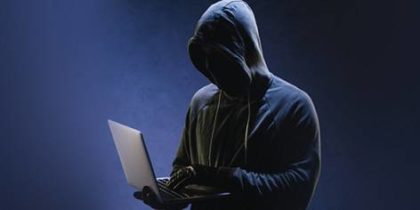“We know where your parents live,” a cyberbully once said to Cherie Wong, a Canadian activist.
Does this sound more terrifying than watching horror movies alone? Consider yourself in her shoes for a few minutes and realize what she might be going through. Imagine when these online harassers leave you no choice but to stay offline, become extra careful while video calling your loved ones, and pray that they will leave you alone.
The scary part is even the Canadian police can’t track or do anything about this. These cyberbullies even tracked Wong multiple times and she received threatening calls in her hotel room while traveling. Perhaps someone is settling a personal score, or perhaps she’s kind of a big deal. Either way, this is her reality.
Have you heard of Dickey’s BBQ? The credit card information of 3 million customers of Dickey’s Barbeque Pit was posted on a public forum. Some cybercriminals attacked the central system for the collection of credit card details and penetrated private data. And once they steal your credit card information, it will be sold online to the highest bidder. This is how it works.
That’s why we encourage you to make yourself aware of the dangers that are lurking on the internet. Hackers and cybercriminals can easily target people, trigger phishing attacks, and install malware whenever they get a chance. In short, this is how cybercriminals make easy money by using your data against you.
So, you might be preparing yourself for Halloween as if this is just something you should take for granted, but there are hackers and cybercriminals who are getting ready to scare you in many different ways. Perhaps that’s why we’re using Halloween as a PSA: like those ghouls and goblins you see on the street (or perhaps not until they terrify the living daylights out of you), you may not see it coming.
You must be thinking… But how and why me?
Picture this: You may buy Halloween costumes, crafts, gifts and props by visiting an online store and entering your credit card information. This is where a hacker comes in and launches an e-skimming attack that effectively steals your private information. Easy-peasy. Cybercriminals love people! They especially love to target people like you who don’t take safety precautions, even the simplest ones like setting a difficult password.
While you might watch Halloween movies on Netflix, hackers can get hold of your credentials and sell your entire account at a cheaper price. How? Simple: laziness. That’s right, this happens when you are using the same credentials on every website. And it happens more often than you think. This means you are the one paying for a Netflix account while others are watching it without even spending a cent. It sounds like a Hackoween marathon to me.
To fight these types of cyberthreats on your own, you don’t need a brain like Tony Stark. All you need is to keep your online identity safe and hidden using basic security tips. This is the reason why we want you to know about the most common cyberthreats in 2020 and beyond. Just like the Covid-19 pandemic, Halloween is another event for cybercriminals to steal data and launch several malware attacks so be careful online.
Take a look at these top 5 cyber threats. You may not have heard of some terms, but we’re here to help:
1. Phishing Attacks
Most people started working from home without a secure home network. This made it easier for hackers and cybercriminals to launch multiple phishing attacks and get your private data. In simpler words, a phishing attack happens when a hacker entices an internet user like you to click on an email link or a message. You might click on this and think it is just a phone ad that is offering you a 2 for 1 discount or something similar. But turns out you are wrong and the vicious hacker steals your information.
Stats: 44% of phishing attacks happen when someone clicks a malicious link in an email.
What should you do? Don’t open an email before verifying the sender’s information. If it is someone you don’t know, then avoid clicking on any link. Even if you have opened an unknown email, check the subject and body and whether or not it is relevant to you.
ICYMI: A new phishing attack targeting Office 365 users is making use of authentication APIs to validate victims’ Office 365 credentials – in real time.
Full details 👇 https://t.co/AaDSNylxQ4
— Kaspersky (@kaspersky) September 27, 2020
2. Deepfake Attacks
You are gonna love this (or not) if you are a fan of the Mission Impossible series. Deepfake attacks are when an attacker disguises himself as a trusted source and asks you to send private information via email or phone call. The attacker can call you (audio deepfake) as a bank official or insurance vendor to steal your private data like credit card details and login credentials. Online stores are the best platforms for cyberattackers to trigger deepfake attacks because there is zero human contact and millions of dollars are exchanged online.
Stats: The cost associated with deepfake attack scams might rise to $250 million in the whole world by late 2020.
What should you do? If a person calls you from the bank or insurance company and asks you for private information, you must always double-check if they are speaking the truth. This is a more common scam than you actually think. Also, you must always be wary of sharing your credit card information on Amazon or Walmart or any other online store. If you’re not expecting the call, choose to call them back at a number that you know is safe, such as the number on their website.
3. Web Skimming
In short, web skimming or e-skimming is a type of cyberattack where the attacker compromises the devices or the systems needed to push the code to the website’s server (online store). Once your device or online systems are compromised, the attacker slips malicious scripts and steals your credit card details. In most cases, the payment pages of online stores contain these malware scripts that serve as a backdoor for attackers to get what they want.
Stats: Malwarebytes is personal security software that blocked more than 65,000 attempts to steal credit card details from multiple online stores.
What should you do? Try using strong passwords, 2-factor authentication, and a secure transfer method. PayPal is a much safer option for buying online items because most online stores redirect you to PayPal’s website after you make a purchase.
4. Hacking IoT Devices
IoT devices are your smart appliances such as Amazon Alexa, smart locks, Siri, smart coffee machines, or smart bulbs that are controlled by the internet. The problem is, hackers can penetrate any device that is connected to the internet, even your Alexa. And they have done it multiple times in the past across the board, exploiting coffee machines, baby monitors, and of course, home cameras too.
Stats: Gartner explains that there will be up to 75 billion IoT devices by the end of 2025. More devices means more chance of cyberattacks, and even worse, cyberbullying.
What should you do? We can’t stop anyone from using an IoT device but you need to use some security measures. Use a strong password instead of using the default ones. You can also use devices like Alexagate to turn off Amazon Echo and ensure no one is listening to your private conversation.

5. Botnets
A botnet is an army of online robots that infect computers with malware, which is of course controlled by a cyberattacker. How can they impact your device? Botnets can steal your private information, cryptocurrency passwords, or use your device to trigger spams in other networks. And once a botnet gets a hold of your device, you are no longer the primary owner. The most popular botnet was Conficker Worm that single-handedly affected millions of devices in the past.
Stats: The 3ve botnet infected up to 1.7 million computers in 2018 as well as created multiple servers that can further build unwanted traffic on Google using bots.
What should you do? Use a Virtual Private Network on your computer and laptop at all times. Consider a VPN app as your silent guardian that will automatically combat cyber threats and prevent cyberattacks. Moreover, you must turn off Wi-Fi and Bluetooth on your devices when not in use.
#Botnets are one of the top #cyberthreats to look out for in 2020, according to Forrester, and with a dispersed, remote workforce, many organizations may be more vulnerable than ever before. 👇 https://t.co/uxm0a3Ly5a pic.twitter.com/M08Bdt58lx
— ESET (@ESET) October 23, 2020
Watch Your Back from Spooky Online Things…
We hope now you know a bit more about the real scary stuff that can impact your life in so many ways. New technologies are helping and allowing cybercriminals to exploit your information and damage your online privacy. The good news is you don’t have to worry about cyber threats once you make yourself aware of how to deal with it.
On this Halloween, we are giving you a treat which is better than chocolates and candy bars. You can now protect yourself from cyber ghosts and hackers by using our VPN app that is specifically designed to enhance device security. Enjoy an easy-to-use VPN app that can shield your digital life with just a single click of a button. Knowing there are mean hackers out there who will try to hack your devices and steal your data during these events like Halloween, using a VPN app can be your best defense.
Be a bit more cyberaware and follow our expert advice when it comes to online safety.
#AllnewPureVPN #SecureHalloween #Fightcyberthreats




